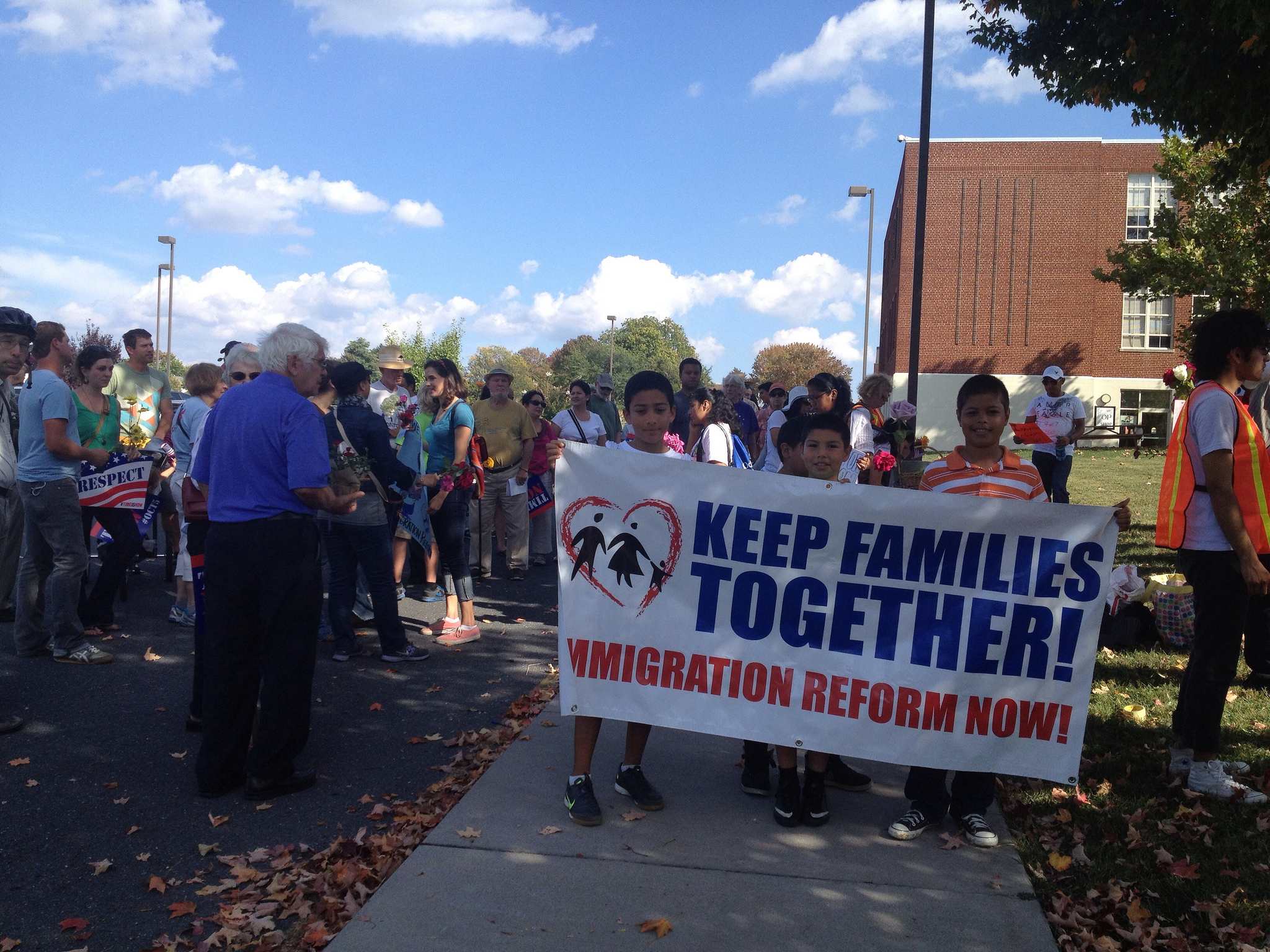
By Kiersten Rosetto
Published in the Daily News Record on November 9, 2013
On Oct. 5, a group of around 200 people gathered at Court Square to celebrate The National Day of Dignity and Respect. During this march, we wanted to call attention to the past, present, and future as a city, state, and nation. With much conversation towards inclusion, our hopes in marching that Saturday was to create that space. As the United States is experiencing growth of population and ideas, it brings a lot of change within our politics, communities, conversations, and demographics. It also brings more opportunity for misunderstanding the movement — a movement that supports earned citizenship, not amnesty.
Participants in Harrisonburg began a pilgrimage across town starting at Lucy Simms School. We walked in silence and participants were encouraged to remember family and friends who have either been deported or have passed away trying to cross the border. Each person carried a flower and had the ability to write a message about the loved one(s) they were remembering. We ended our march at Court Square.
We wanted to keep the program short. But we also wanted to educate and encourage dialogue in settings around town. With dedicated people, immigrants who are part of our community, giving an introduction to what all dignity signifies, the crowd became aware of one another in ways they might not have ever seen before. Through this experience, we were not only supporting and affirming dignity; we were strengthening Harrisonburg as a whole.
The point of the march was simply to converse and to welcome everyone to a space of common ground and respect. We recognize that the political sphere has reduced humans and their stories of struggle and triumph into numbers and statistics, and our goal was to bring neighbors together to begin disassembling our differing perspectives and see humanity in all of us equally.
We walked in unity for remembrance, and for a push for comprehensive immigration reform, but we did not march for amnesty. Our government, at all levels has the ability to grant millions of immigrants a pathway to citizenship. The pathway proposed by Congress would take at least 13 years for those currently living and working in the U.S. to earn citizenship. This policy is far from amnesty, and it is a compromise supported by both major political parties. Our goal is not to demand amnesty or disregard of the law, but to come up with and agree upon, stipulations for those rules and regulations to be followed in a way that is inclusive of those already contributing to the U. S. economy without the hope of obtaining citizenship in the current system.
Almost everyone agrees our immigration system is broken. The activists marching for dignity and respect in Harrisonburg want to find a solution that works for everyone.
The march for dignity and respect was an attempt to have that conversation about what it means to engage with our neighbors, regardless of immigration status, political stance, or where in this world you happened to be born.
Just as we work hard at respecting our immigrant population, we must also respect persons who think differently than us. This day was an invitation to all of Harrisonburg to put difference aside and celebrate our town and the human stories that everyone has encountered regardless of political viewpoints.
Change begins with conversation and understanding of what everyone brings to the table, including the people that don’t necessarily agree or understand. This place to educate, to communicate with one another, and hear ourselves and value opinions and stories is what we long to cultivate through our communities here in Harrisonburg and throughout the nation.
Amnesty is not what we seek, but we do yearn for our communities to converse, learn together, and struggle through our differences in order to respect all who are affected and participating in our community, including the undocumented immigrants of our nation.
Kiersten Rossetto is a graduate of Eastern Mennonite University and lives in Mechanicsburg, Pa.


